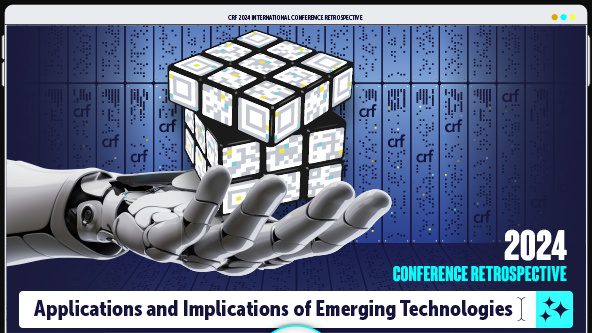AI and Technology
HRD Briefing 2021: Technology Trends

THE DECENTRALISED WORKPLACE
There’s no going back: flexible working is here to stay. Repeated lockdowns proved that work can get done pretty effectively at home. To keep talent motivated, leaders must ensure that their IT systems are optimised for remote working, and embrace virtual communication tools that make staff feel part of the core company. Leaders should also use software tools to bring their distributed teams together in offices for just part of the week. I recently made a personal investment in Finnish startup Spacent, which provides a digital simulation of available desk space in a city, enabling companies to book those desks for hours or days at a time. It’s what comes after co-working.
INNOVATION ACCELERATION
The pandemic forced the lingering analogue industries – from department stores to doctors’ surgeries – to digitise rapidly in a bid to survive. That impetus to digitise will only increase, and leadership teams will need to embed technology-led innovation at the core of their strategies. If customers can touch a phone screen or ask Siri for something you offer, you’d better make sure your processes are in place to deliver it as if by magic. This means investing in your in-house tech teams and building an ecosystem with independent tech start-ups that can help you.
ALGORITHMIC BIAS
There’s a growing concern that our increasingly AI-driven lives are subject to the biased assumptions of those who wrote the code. Do your face-recognition entry systems find it harder to recognise non-white staff? Is your recruitment database disproportionately penalising older women? Expect greater public scrutiny – from your staff, but also from politicians – of automated decision-making in all its forms.
CARBON ACCOUNTABILITY
In 2021 you will come under greater pressure from your staff to contribute towards carbon neutrality, as employees expect you to walk the walk on sustainability. You can’t change what you can’t measure so a first step will be to audit your organisation’s contribution to CO2 emissions, and you will be expected to be open and accountable. Luckily there’s a new breed of climate-tech start-up, such as Plan A in Berlin, that will help you comprehensively measure and reduce your company’s emissions.
THE PASSION ECONOMY
Remember the gig economy? Now get used to the passion economy. A swathe of new online skills marketplaces are enabling individuals to earn a living by trading on their personal reputation. It’s like eBay or Etsy, but for monetising workplace skills and passions (hence the trend’s name) in new ways. Teachers are selling coursework on platforms such as Kajabi, Teachable and Podia; journalists are making six-figure incomes by writing subscription newsletters on Substack; there’s even a platform called Dumpling where individuals set themselves up as personal grocery shoppers. As the trend spreads into more sectors, it’s going to put pressure on employers to recognise the economic value a star performer brings to a company – or else they may go it alone. As if leaders needed one more thing to worry about after a tumultuous year.

PRACTITIONER VIEW
David spoke at Bupa’s global HR forum in 2019 and he was great. Unlike quite a few in this field he has hands on experience of disruptive technological innovation and knows personally many of the start-ups he writes about – so I always take what he writes with some weight and a lot of credibility. However, that’s not to say that I necessarily always agree with him!
I think it’s a bit too early to call the decentralised workplace yet. There has clearly been a shift, particularly for office based folks, but how profound and permanent it will be is yet to be seen. I prefer to think of this as more of a ‘hybrid-hybrid’ situation with workplaces being areas to bring your work to, as much as where you do your work from. In this scenario it’s more about collaboration, innovation, socialisation, team-work, and a hybrid work setting with the right space to accommodate this. Then there’s the hybrid style of working which sees employees spend maybe two to three days per week at home or in a workplace instead of being in the office 9am-5pm Monday to Friday. We should also spare a thought for those workers where much of this is just not possible at all given the nature of their work.
Innovation acceleration is exactly what we have experienced at Bupa, and it has been incredible. It’s what we were planning to do but the speed, the scale and the ‘one-way’ nature of it has been staggering. For example, in Spain we went from 300 online physician consultations a day to over 5,000 a day in a matter of weeks. This will only continue in scale and sophistication of what we can offer our customers.
I think David is also absolutely spot on to call out carbon accountability. There are clear links between climate change, biodiversity and therefore health of our species and all others. It can no longer be ignored or green washed. Companies with social purpose and sustainability at the heart of their strategies will be the winners in the long-term as the best talent will demand this is and vote with their feet as will customers with their wallets.
This article is part of our 2021 HR Directors’ Briefing Paper. Continue to the next article: Remuneration and Corporate Governance.
MEMBER LOGIN TO ACCESS ALL CRF CONTENT




